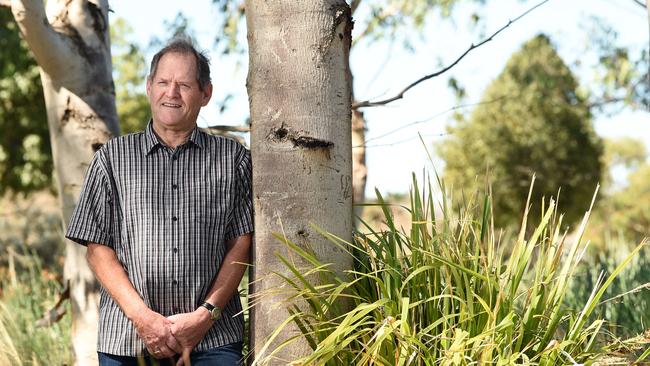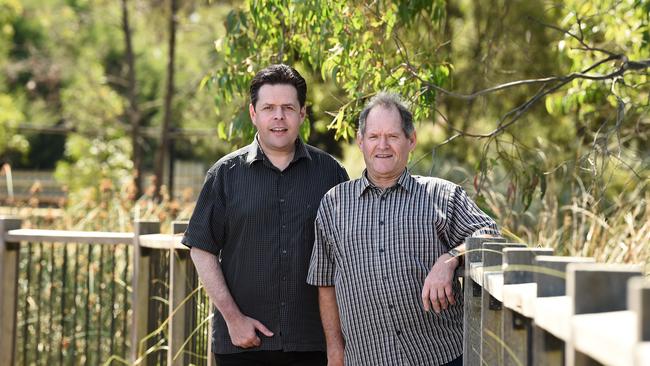Baker Heart and Diabetes Institute EDCAD-PMS study saves Brian Langskaill
A Lara school bus driver’s decision to sign up to a heart health study likely saved his life, with the research discovering he was a ticking time bomb.

Geelong
Don't miss out on the headlines from Geelong. Followed categories will be added to My News.
A Lara school bus driver’s decision to sign up to a heart health study likely saved his life.
Tests revealed Brian Langskaill was a walking time bomb, with the study leading to the discovery of a 95 per cent blockage in his left artery.
The 67-year-old was otherwise healthy, but had family history of heart issues – his dad had rheumatic fever and a quadruple bypass.
In 2021 Mr Langskaill volunteered for the Baker Heart and Diabetes Institute’s EDCAD-PMS study, which looks at a participant’s genetic heart disease risk and is investigating if that information can predict the presence of coronary calcium in the arteries.
Mr Langskaill said before he discovered the study he had heard about coronary calcium and asked a GP to refer him for a test, but the doctor said he should not be concerned.
Coronary calcium is found when plaque — which can block arteries or break away causing heart attacks — is present.
Baker Institute researchers are hopeful that if this profiling can predict the presence of coronary calcium, it will lead to earlier detection of coronary heart disease.
As part of the study Mr Langskaill had a scan, which showed a narrowing of the arteries.
“Naturally I was concerned and considered myself very lucky (it was found),” he said.
In November 2021, he had an angiogram and a procedure to have two stents inserted in the left artery.
Without the intervention, the prostate cancer survivor said it was a case of “not if, but when” he would run into trouble like a stroke or a heart attack.
“Who knows where I might be now,” Mr Langskaill said.
He is on medication and has appointments with a cardiologist to monitor his condition.

Mr Langskaill’s 41-year-old son Trent, who lives in Melbourne’s west, also joined the study following the revelations about his father’s health.
But Trent’s testing, which included his blood pressure, revealed he was low-risk for a cardiovascular event when results came back earlier this month.
Trent said it provided the family peace of mind.
Currently, people’s doctors may refer them for coronary artery calcium scoring following a heart health check.
Associate Professor Melinda Carrington, a lead researcher on the study, said a scan was used to detect coronary calcium and a blood sample for genetic analysis in addition to the traditional heart health check.
“At this stage, this study is seeking whether genetic testing can help us to identify people to go on and have a calcium score,” she said.
The institute is running the study, which is still recruiting participants, from sites in Hoppers Crossing and Prahran.
More Coverage
Originally published as Baker Heart and Diabetes Institute EDCAD-PMS study saves Brian Langskaill





